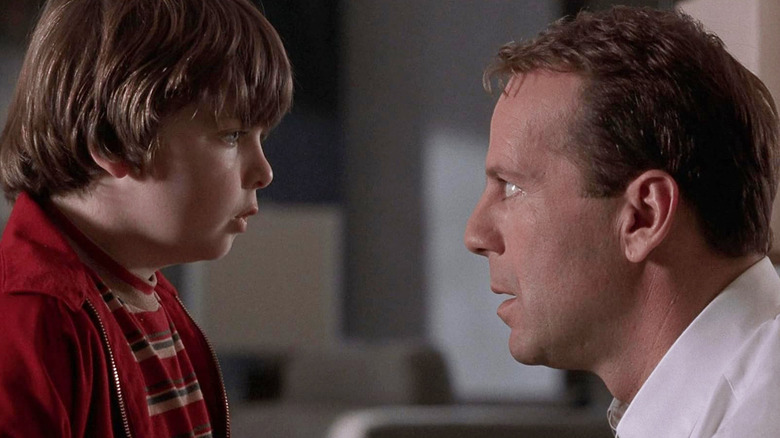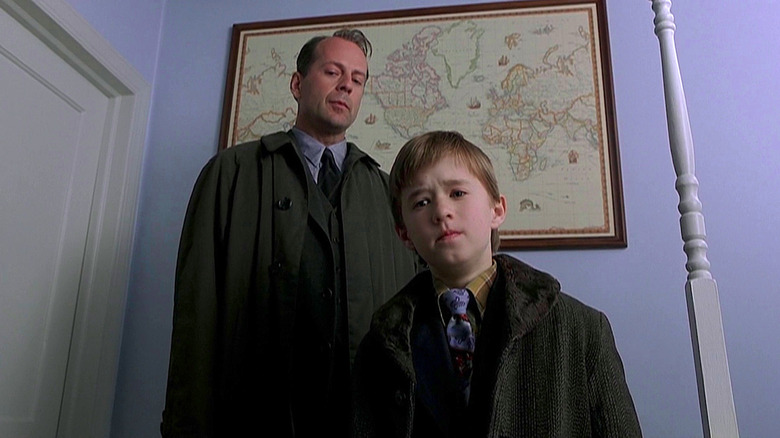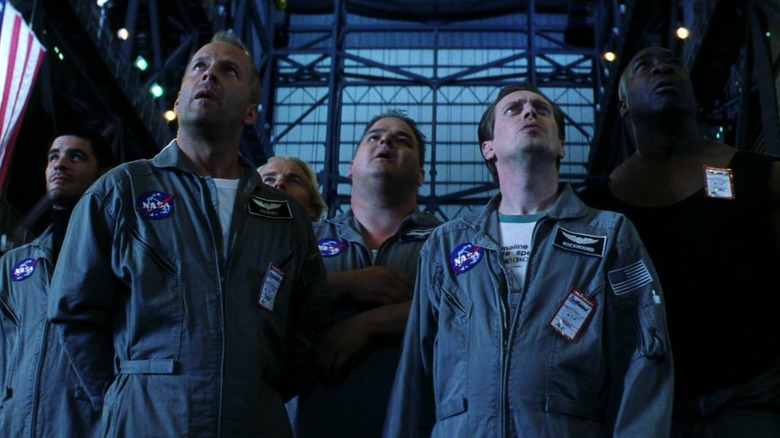Hollywood is a twisted web. Behind the scenes — in mysterious Burbank boardrooms and over croissant-festooned coffee tables in outsize Malibu homes — byzantine deals are being struck between actors, directors, and executive producers. The tit-for-tat agreements that result from these meetings connect various films in unexpected ways. A successful actor may meet with an exec, for example, asking to produce an unusual and ambitious drama, hoping they had built up enough good will to be trusted with a financially risky art project. The exec may then stroke their chin and agree to produce the art project, but only if the actor appears in multiple commercially proven mainstream hits in exchange.
The actor may then reluctantly shake hands with the exec, knowing that it was the only way to get their vanity project made. If you have ever seen a massive movie star appearing in a freaked-out, low-budget indie film, it’s likely you’ll see them in a lot of high-profile pabulum in the next few years.
This was certainly the case with Bruce Willis in the 1990s. Willis has a fascinating filmography that swings wildly through mainstream actioners like “Die Hard” into hit comedies like “Look Who’s Talking” and notorious adult-oriented bombs like “The Bonfire of the Vanities.” Whether he appeared in good films or bad films, Willis always made interesting choices, and one can see the “one for me, three for you” trade-off in effect.
Although, in the mid-1990s, one of Willis’ vanity projects fell apart so badly that he was required to star in three gigantic hits just to avoid legal action. At the time, Willis aimed to produce and star in a high-profile, awards-ready film called “Broadway Brawler,” a romantic comedy about a hockey player. “Broadway Brawler” was to be distributed by Cinergi, a company owned by Disney, and was aiming for a 1997 release date.
The film wasted $14 million and 20 days of shooting before being canceled for reasons we’ll get into below. Willis, to placate Disney, was forced to appear in “Armageddon,” “The Sixth Sense,” and “The Kid.”
The collapse of Broadway Brawler
“Broadway Brawler” was to star Bruce Willis as Eddie Kapinsky, a retired ice hockey player who begins a love affair with Maury Tierney. A 1997 article in the Los Angeles Times compared the film to “Jerry Maguire,” which was released in 1996. Lee Grant was to direct, which was a daring choice as she was best known at the time for her acting (she was a regular cast member on “Peyton Place”) and for directing documentaries, Afterschool specials, and various TV movies. “Brawler” was to be shot by the amazing William A. Fraker, who had already been nominated for five Academy Awards and had shot films for Steven Spielberg, Roman Polanski, Mike Nichols, John Carpenter, and John Boorman.
“Broadway Brawler,” according to a post-mortem in Variety, had been in pre-production for two years. The budget was to be a modest $28 million (considered “mid-budget” in the 1990s) and there didn’t seem to be anything wrong with the idea; everything was going as expected. It seems, though, that once shooting began, Willis stepped in to pretty much ruin everything. The story goes that Willis was furious with the way the film was being shot and hated just about everyone working on the film. After 20 days of shooting had elapsed, Willis had come to the conclusion that everyone was doing a terrible job, which meant he had to fire most of the crew. He fired Fraker, then the costume designer Carol Oditz, then Grant, and then his own producing partner Joseph Feury, Grant’s husband. Several other people were also let go.
Willis then hired Dennis Dugan, the director of “Problem Child” and “Happy Gilmore,” to replace Grant and salvage the production. However, since so much money had already been spent, Disney chose instead to cut its losses. The studio swept in and canceled the flagging production. No useable footage was salvaged and “Broadway Brawler” was put away forever.
Armageddon outta my debts
Disney had every right to sue Willis for his rash choices as he’d cost the company a lot of money. According to Variety’s article, Grant and Fuery were still owed a significant amount of cash when they were fired, and Willis had to honor their contracts. Ultimately, Willis cost Disney $14 million for a film that was never completed. Instead of getting litigious, however, Willis and Disney made a deal. To pay back the $14 million he lost on “Brawler,” Willis would have to star in multiple big-budget Disney films and turn over large portions of his salary to the company.
When Willis was cast in Michael Bay’s disaster film “Armageddon” in 1998, he gave most of his salary to Disney, accepting a mere $3 million payday (much lower than the $15 million salaries he had been commanding up to that point). “Armageddon,” luckily for Willis, was a huge hit, making over $554 million. Willis’ star power clearly hadn’t diminished as a result of the “Broadway Brawler” debacle.
This was proven further when Willis was forced to appear in Disney’s second hand-picked selection for him, M. Night Shyamalan’s “The Sixth Sense” in 1999. That film was meant to be a sleepy, mid-budget, late-summer horror flick, but proved to be unexpectedly popular, earning nearly $673 million on a $40 million budget. It was also nominated for six Academy Awards, including Best Picture. And to think, Willis would likely have not been involved had it not been for “Broadway Brawler.”
The third Disney selection for Willis was 2000’s “The Kid,” directed by Jon Turteltaub. That film saw an adult Willis meeting the kid version of himself face-to-face. “The Kid” did pretty well at the box office, but its production meant that the actor was finally free of debt.
Willis continued to make interesting choices after that, including another collaboration with Shyamalan for the 2000 film “Unbreakable” and its 2019 sequel “Glass.” He is now retired and living with frontotemporal dementia.





